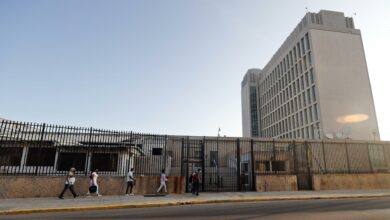Australia’s PM-elect announces climate policy change

Sydney, Australia, May 22 (EFE).- The leader of the Australian Labor Party, Anthony Albanese, who is set to take charge as the prime minister of the country, said that his new government would change several key policies, especially the country’s response to the climate crisis.
“There will be a change of policies on things like climate change,” especially regarding Australia’s commitment on the issue, Albanese told reporters in Sydney a day after his electoral victory, although it is not yet clear whether the Labor party would obtain a clear majority or need to form an alliance.
The party’s agenda includes reducing Australia’s polluting emissions by 43 percent, compared to 2005 levels, by 2030, a more ambitious target than the 26-28 percent goal set by the outgoing national coalition government, which was criticized both domestically and internationally for not taking more decisive measures against climate change.
Albanese and his foreign minister, Penny Wong, are set to be sworn-in on Monday in Canberra, before they attend Tuesday’s summit of the QUAD countries – Australia, the United States, India and Japan – in Tokyo.
On the next day, the leader would return to continue government formation efforts
So far, the Australian electoral commission has announced a Labor victory on 74 seats – close to the absolute majority of 76 – while the Liberal-National coalition led by the outgoing prime minister, Scott Morrison, has managed to secure 52 seats.
Morrison had admitted defeat on Saturday night.
According to the official provisional counting of votes, the Centre Alliance and the far-right Katter’s Australian Party have won one seat each, while the upcoming House of Representatives – with a total strength of 151 – will have 10 independent lawmakers who have backed strong measure against climate change.
The Australian Greens are expected to win between one to three seats in the elections, with the full results for the lower house yet to be announced. Election results for 40 of the senate’s 76 seats are also yet to be declared.
The electoral campaign had mainly revolved around economic issues and the high cost of living, with the country witnessing a 5.1 percent inflation rate – the highest in decades – along with foreign policy, gender equality and climate change, a subject which has caught greater attention after three years marked by multiple fires, droughts, floods and coral bleaching. EFE
wat/ia





